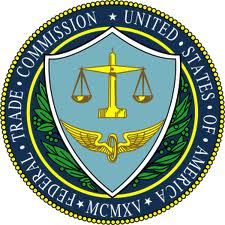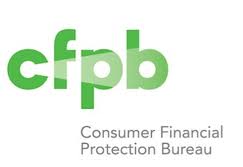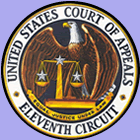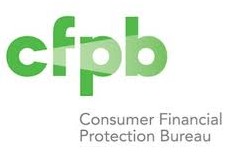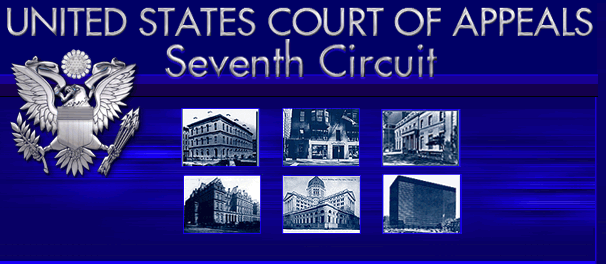The Consumer Financial Protection Bureau has ordered RealtySouth, the largest real estate firm in Alabama, to pay a civil monetary penalty of $500,000 for mortgage disclosure violations. The CFPB has charged the company with illegally steering purchasers to use its affiliated company, TitleSouth LLC, for title and closing services. The penalty, along with other injunctive relief, are contained in a consent order under which RealtySouth neither admits nor denies the CFPB’s allegations. The CFPB says the company violated the Real Estate Settlement Procedures Act, when it encouraged its agents and in some cases required them to use TitleSouth in real estate…
Auto lenders are in the cross-hairs of federal regulators. The Consumer Financial Protection Bureau recently announced it is drafting a larger nonbank participant rule for auto lenders. In the meantime, the Federal Trade Commission announced yesterday the filing of a stipulated order imposing a civil monetary penalty and injunctive relief against a subprime auto lender. Big Penalty, Restitution, Restrictions The Federal Trade Commission announced yesterday that Consumer Portfolio Services, Inc. will pay a civil monetary penalty of $5.5 million arising from its servicing and collection of consumer motor vehicle loans. In addition to the monetary penalty, the lender agreed to make certain changes to…
The Consumer Financial Protection Bureau’s May 22 Supervisory Highlights report offers a rare glimpse into the CFPB’s thoughts on its first two years of supervision of nonbank entities, particularly debt buyers and debt collectors. Although the report contains several of the bureau’s standard talking points (data integrity in debts sales, for example) it does reveal new issues that have drawn the regulator’s attention and new guidance on pre-existing areas of concern. Compliance Management Systems It’s hard to believe, but according to the bureau some credit reporting agencies had no compliance management systems in place. Where it found a CMS, there were several instances uncovered where neither…
While there are many reported cases discussing attorney fee awards to successful plaintiffs under the Fair Debt Collection Practices Act, fee awards for defendants who had to endure bad faith complaints are few and far between. Recently, one of these rare opinions surfaced in the Eastern District of Missouri in Nguyen v. Capital One Bank, (USA), N.A., 2014 U.S. Dist. LEXIS 46716 (E.D. Mo. Apr. 4, 2014). The underlying putative class action complaint was filed in state court and removed by the defendants who then filed a motion to dismiss. The District Court granted the unopposed motion to dismiss and…
The House Financial Services Committee will question representatives of federal financial regulatory agencies during a hearing tomorrow entitled, “Who’s In Your Wallet: Examining How Washington Red Tape Impairs Economic Freedom.” According to the committee, “This hearing will examine the economic consequences of recent rulemaking, supervisory, and enforcement actions of the Consumer Financial Protection Bureau, the Federal Deposit Insurance Corporation, the Federal Reserve Board, the National Credit Union Administration and the Office of the Comptroller of the Currency on consumers, community financial institutions, the U.S. economy, and our domestic job-creating businesses.” During the hearing, the committee will investigate how the agencies evaluate…
Title loan lenders are under fire from New York Attorney General Eric Schneiderman who announced this week that he reached “agreements” with 10 repossession agents to stop accepting their repossession assignments. Title loan companies do not establish a physical presence in New York to avoid its 16 percent maximum loan interest rate for unlicensed lenders, according to a press release from Schneiderman’s office. According to the press release, these out-of-state title loan lenders are charging interest rates ranging from 100 percent to more than 700 percent. A title loan, which is a type of payday loan, can often worsen a consumer’s financial problems because many are unable to pay off…
The Consumer Financial Protection Bureau has issued its Consumer Response Annual Report which includes complaints related to debt collection. As it did in its Annual Report on Debt Collection issued on March 20, the CFPB again represents having received “approximately 31,100 debt collection complaints” in 2013. This number, however, is far greater than the number of debt collection complaints appearing in its public database. So where are the missing complaints? Last week Eric Rosenkoetter of the National Association of Retail Collection Attorneys provided some of his thoughts on where the missing CFPB complaints may have gone. Listen to Eric, David Reid of DBA…
According to a blog post made by Federal Communications Commissioner Michael O’Rielly, immediate changes are needed to the Telephone Consumer Protection Act to address the flood of litigation caused by its own “complex and unclear” rules. Citing changes in business models and methods of communications he notes that the FCC’s rules have become “complex and unclear” and suggests that clarification would benefit all parties impacted by the TCPA. Another concern voiced by the Commissioner is the fact that TCPA complaints have increased by 30 percent in the past year and that there is a growing backlog of petitions to the FCC…
The Consumer Financial Protection Bureau released a report today outlining its efforts and objectives in regulating, supervising and enforcing against debt collectors. The report is available here. Past CFPB reports have provided guidance on where the bureau might be headed in its regulation, supervision and enforcement efforts. This year’s report is no different. It notes the growth of medical and student loan debt collection. Expect more focus on these sectors right away. In addition the report examines: consumer complaints the CFPB and the Federal Trade Commission have received over the past year their enforcement activities the bureau’s supervision of debt collectors the bureau’s rulemaking,…


